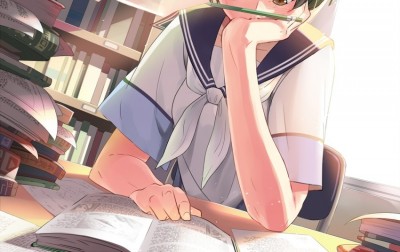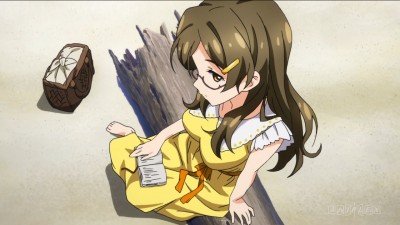
Rock, meet glass house.
Whenever people complain about dysfunctional Japanese DVD/Blu-ray prices, all you need to do is point to the myriad of American or European media goods that are sold for a fraction in other countries, and how publishers sue or threaten reverse-importers for those purposes. And sometimes it’s not even media goods…
The latest US Supreme Court decision basically affirms a first-sale right of legitimately produced foreign good for sale domestically:
In Kirtsaeng v. John Wiley & Sons, the Court considered the “first sale†doctrine of copyright law.  This is a rule that means that when a publisher sells a copyrighted work once, it loses any right to complain about anything later done with that copy.  This is the rule that makes it okay to resell a used book to a used-book store, and for that store in turn to sell used books to its customers.
The issue in Kirtsaeng was whether the first-sale doctrine applies to copyrighted works manufactured overseas.  Kirtsaeng bought textbooks in Thailand, where they are cheap, brought them to the United States, and resold them at a large profit.  The lower courts said he couldn’t do this, and ordered him to pay damages to the publisher (John Wiley).  The Supreme Court disagreed.  The Justices said that the first-sale doctrine applies to all books, wherever made.  So even if you buy a book made in England, you can resell it without permission from the publisher.
Which is good! Because it would be sad if, I don’t know, J-List got shut down for something retarded. Oh wait, that doesn’t work. Actually, given this is a case on American copyright law, it doesn’t have anything to do with the situation where going to certain Akiba shops can score you FUNimation’s Spice & Wolf on Blu-ray, or anything like that, because that is solely the call of the Japanese government.
But that’s the internet armchair bandit version of the interpretation. The truth, as usual, is more like if companies can’t no longer forbid price discrimination along national/geographic boundaries, this is why we can’t have nice things. We’ve seen it happened once with Blu-ray when the US no longer sits in a different region than Japan, so dub-only BDs, hard-sub BDs, and in some cases, no-BDs, became the North American release. Does it suck? Kind of. What really sucks is that if a large company wants to sell cheaply to a poor and developing country, they will have to be wary of reverse-importers trying to make a shiny buck by undercutting and disrupting the home market. This may mean those guys won’t get to have a nice thing, too. And their nice things could be “college education” or “medicine so they don’t die.”
The narrative gets a lot worse once you consider that first sale doctrine applies to patents as well. This could mean cheap, patented drugs sold by big pharmas to poor countries at margin, could be reverse-imported for massive gain in the grey market, legally. And if you know anything about the grey market for drugs, well, you know how bad it can be. So does this kind of law actually serve society in a beneficial way? The irony is that Wiley (the loser/plaintiff) sold books cheaply in Thailand both because the cost of living just can’t justify the outrageous textbook prices here, but also it’s a humanitarian thing to do. It’s good to sell text book cheap to poor countries, to countries full of people who want to study but can’t afford to.
[It’s also kind of a head-turning moment when you realize why anime is cheap in America. I mean, Americans really are treated like third-worlders when it comes to this stuff…or are we? Anime does not cost significantly more here than most of East Asia, after all. Maybe there is something to paying more money for anime. Maybe there’s something fundamentally wrong with the way we value media, at least ones in print. Something to think about.]
The motives behind the decision, however, is sound. The idea is that the Justices simply interpret the law of copyright First-sale Doctrine this way to get the public (and more importantly, the rights holder) to think about changing the law via Congress. I think copyright is always something that should be revisited legislatively anyway; the overwhelming concept behind it is that this is a way for government to regulate the industry of intellectual properties, not some civil right or anything so sensitive. Given the climate of big tech getting their feet into the door of Capitol Hill, maybe now is better than ever before to hammer this copyright thing to fit the use for this millennium, because at least we’re slowly approaching parity of power, to not have the content-owner-tail wag the dog that is the rest of the world.
PS. More blogs should define its own self-citations…



